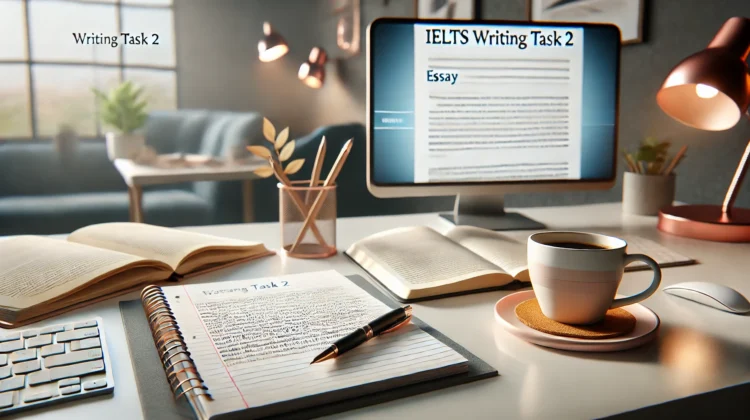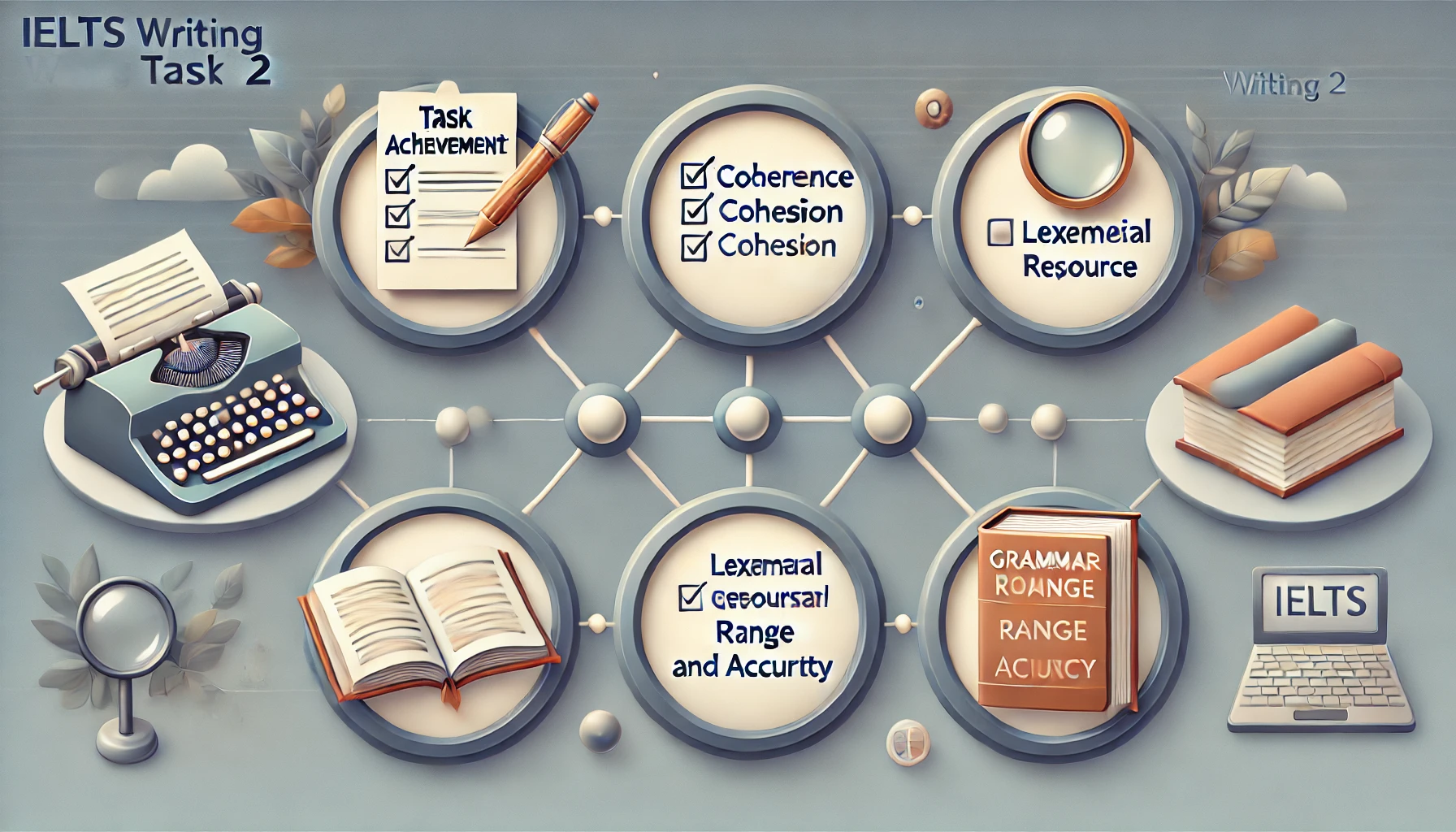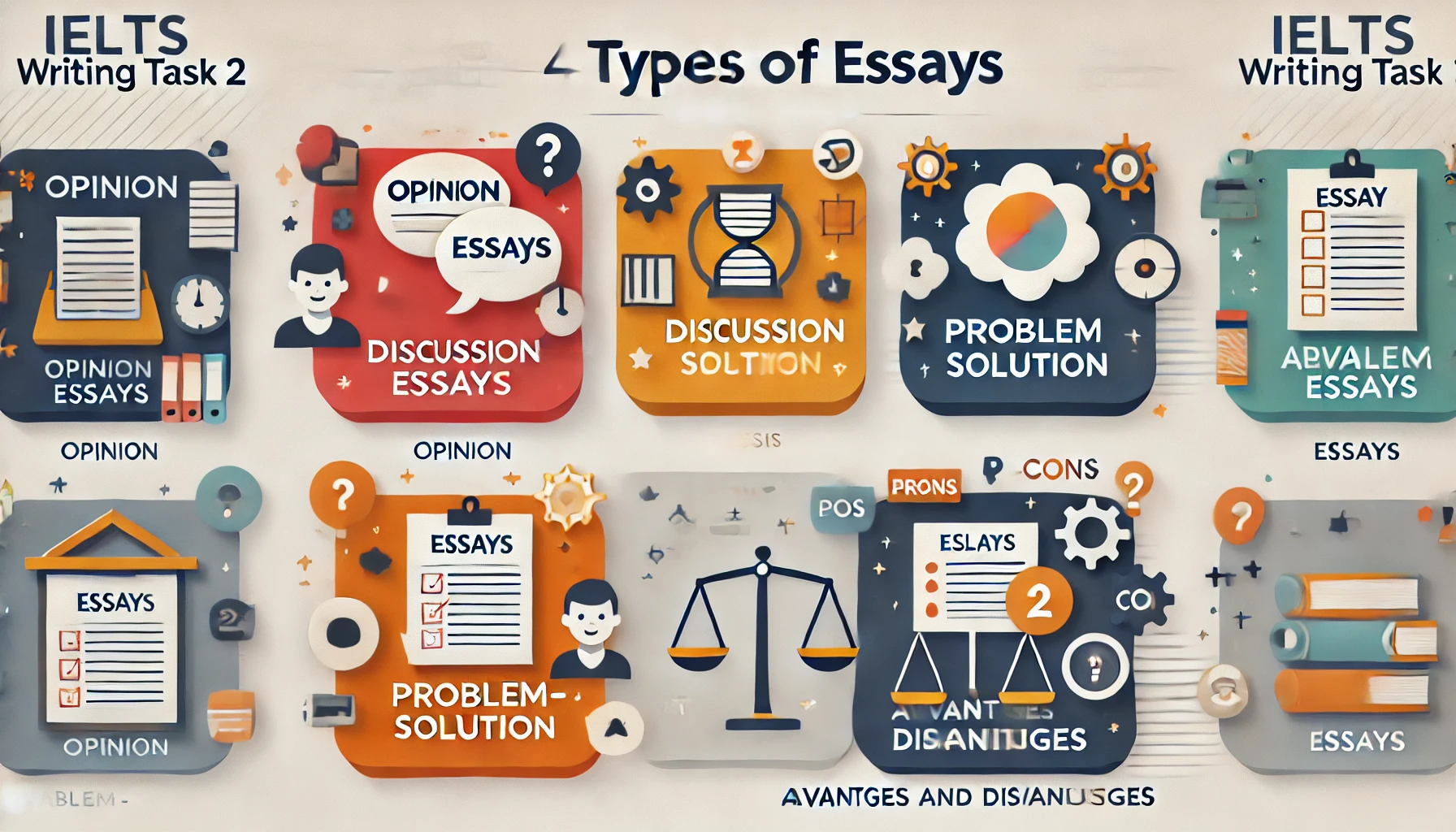
IELTS Writing Task 2: Unlocking the Secrets to Essay Success
The IELTS Writing Task 2 is a crucial component of the IELTS exam, designed to evaluate your ability to construct a well-organized argument in English. This section challenges candidates to express their ideas clearly, coherently, and persuasively within a limited timeframe. Whether you are aiming for academic or general training, achieving a high band score in Writing Task 2 requires more than just good grammar—it demands strategic thinking, effective time management, and a mastery of essay-writing techniques.
In this article, we will explore proven strategies and practical tips to help you excel in IELTS Writing Task 2.
Understanding IELTS Writing Task 2

Before delving into the strategies, it is essential to understand the basics of Writing Task 2. You will be required to write a 250-word essay on a given topic, which may involve discussing an opinion, solving a problem, analyzing two views, or evaluating the advantages and disadvantages of a situation. The task contributes to 66% of the total Writing score, making it a critical area to focus on.
Key Assessment Criteria
The IELTS Writing Task 2 is assessed based on four main criteria:
- Task Achievement: How well you address all aspects of the question and provide a relevant response.
- Coherence and Cohesion: How logically you organize your ideas and connect them using linking words.
- Lexical Resource: The range and accuracy of your vocabulary.
- Grammatical Range and Accuracy: The variety and correctness of your sentence structures.
Understanding these criteria is vital, as they serve as a roadmap for structuring your essay.
Essay Types in IELTS Writing Task 2
There are four common types of essays in IELTS Writing Task 2:
- Opinion Essays: These require you to state your opinion and support it with arguments.
- Discussion Essays: These involve analyzing both sides of a topic and providing a balanced view.
- Problem-Solution Essays: Here, you need to identify a problem and propose possible solutions.
- Advantages and Disadvantages Essays: These ask you to evaluate the benefits and drawbacks of a particular situation.
Identifying the essay type is the first step to crafting an effective response.
Step-by-Step Guide to Writing a Winning Essay

1. Analyze the Question
- Read the question carefully to identify keywords and understand the topic.
- Determine the type of essay required and plan your response accordingly.
2. Brainstorm Ideas
- Spend 5 minutes brainstorming ideas and organizing them into main points.
- Use bullet points or mind maps to jot down arguments, examples, and counterarguments.
3. Structure Your Essay
A well-structured essay includes:
- Introduction: Briefly paraphrase the question, state your opinion (if required), and outline the main points.
- Body Paragraphs: Develop each main point in a separate paragraph with supporting examples and evidence.
- Conclusion: Summarize your main arguments and restate your opinion.
4. Use a Wide Range of Vocabulary
- Avoid repeating words or phrases.
- Use synonyms and topic-specific vocabulary to enhance your Lexical Resource score.
5. Write Complex Sentences
- Combine simple sentences into compound or complex structures.
- Use a mix of sentence types to demonstrate grammatical range.
6. Link Your Ideas
- Use cohesive devices like “however,” “moreover,” and “in contrast” to connect your ideas.
- Avoid overusing linking words, as this can make your writing appear forced.
7. Practice Time Management
- Allocate 40 minutes to Writing Task 2: 5 minutes for planning, 30 minutes for writing, and 5 minutes for reviewing.
- Stick to the word limit to avoid penalties.
Common Mistakes to Avoid
Success in IELTS Writing Task 2 depends not only on what you do right but also on avoiding critical mistakes. Even highly skilled English users can lose marks by making common errors. Below, we delve deeper into the most prevalent mistakes and how to avoid them effectively.
1. Misinterpreting the Question
Many candidates fail to fully understand the question before starting their essay. This can lead to an irrelevant response, which significantly impacts the Task Achievement score.
How to Avoid:
- Carefully read the question multiple times.
- Identify the instruction words (e.g., discuss, evaluate, to what extent do you agree?).
- Highlight key terms and ensure your essay addresses all aspects of the prompt.
2. Failing to Plan the Essay
Skipping the planning stage often results in poorly structured essays. A lack of organization can make your writing appear incoherent.
How to Avoid:
- Dedicate 5 minutes to brainstorming and outlining your essay.
- Decide on the main points for each paragraph before writing.
- Use a clear structure with an introduction, body paragraphs, and a conclusion.
3. Writing Off-Topic Content
Going off on a tangent or including irrelevant details reduces the effectiveness of your response and wastes valuable time.
How to Avoid:
- Stay focused on the question and its requirements.
- Regularly refer back to the question as you write.
- Avoid adding unrelated information to fill space.
4. Repetition of Ideas
Repeating the same points in different words shows a lack of depth and can affect your Lexical Resource and Task Achievement scores.
How to Avoid:
- Ensure each paragraph addresses a unique idea.
- Expand on points with relevant examples or explanations.
- Use synonyms and varied sentence structures to avoid redundancy.
5. Overusing Linking Words
While cohesive devices (e.g., however, moreover, therefore) are essential, overusing them can make your writing seem unnatural.
How to Avoid:
- Use linking words judiciously to connect ideas logically.
- Avoid using the same linking word repeatedly within a paragraph.
- Learn a range of cohesive devices and alternate their use.
6. Poor Time Management
Many candidates spend too much time on one part of the essay, leaving little or no time to review.
How to Avoid:
- Practice writing essays under timed conditions.
- Stick to a clear time allocation: 5 minutes for planning, 30 minutes for writing, and 5 minutes for reviewing.
- Move on to the next section if you’re running out of time.
7. Ignoring Grammar and Spelling
Grammatical errors and misspellings can significantly lower your score in Grammatical Range and Accuracy.
How to Avoid:
- Review your essay for common grammar mistakes, such as subject-verb agreement, verb tense, and article usage.
- Use a variety of sentence structures, but prioritize accuracy over complexity.
- Practice writing regularly and seek feedback to identify recurring mistakes.
8. Exceeding the Word Limit
Writing excessively long essays may lead to a loss of coherence and reduce the time available for reviewing.
How to Avoid:
- Aim for 260–280 words—enough to fully develop ideas without going overboard.
- Practice writing concise and focused paragraphs during preparation.
9. Neglecting the Conclusion
Some candidates either skip the conclusion or write a rushed one that lacks impact, which affects coherence.
How to Avoid:
- Always leave time to write a concise conclusion that summarizes your main points.
- Rephrase your opinion or position clearly to reinforce your argument.
10. Lack of Examples and Evidence
Failing to support arguments with relevant examples or evidence weakens your essay.
How to Avoid:
- Use real-world examples or hypothetical scenarios to strengthen your arguments.
- Ensure examples are relevant and contribute to the clarity of your point.
Key Takeaway
Avoiding these common mistakes can significantly enhance your performance in IELTS Writing Task 2. By practicing regularly, adhering to a structured approach, and staying focused on the question requirements, you can avoid pitfalls and boost your confidence on exam day.
Sample IELTS Writing Task 2 Question and Response

Question: Some people think that schools should teach students to be good citizens, while others believe that this is the responsibility of parents. Discuss both views and give your opinion.
Sample Response:
Schools and parents both play a vital role in shaping a child’s character and preparing them for life as responsible citizens. While schools provide formal education and social interaction, parents influence moral values and behavior. In this essay, I will discuss both perspectives and argue that a collaborative effort is essential.
On the one hand, schools are ideal environments for teaching citizenship. They offer a structured curriculum that can incorporate lessons on ethics, civic responsibilities, and cultural understanding. For example, programs like community service and debates on current issues can instill a sense of social responsibility among students.
On the other hand, parents have a more direct and personal influence on their children’s values. From an early age, children learn by observing their parents’ actions and attitudes. For instance, parents who emphasize honesty and empathy are likely to raise children who value these qualities.
In conclusion, while schools provide the necessary theoretical knowledge and practical experiences, parents lay the foundation for a child’s character. Therefore, fostering good citizenship requires a partnership between educational institutions and families.
Additional Tips for Success
- Practice writing essays on a variety of topics to improve your adaptability.
- Read high-quality English articles to expand your vocabulary and gain insights into essay-writing styles.
- Seek feedback from teachers or peers to identify areas for improvement.
Recommended Resources
For further practice and guidance, explore these reliable websites:








